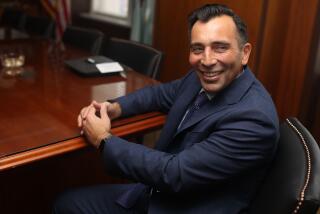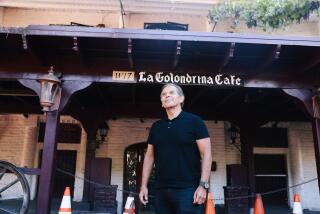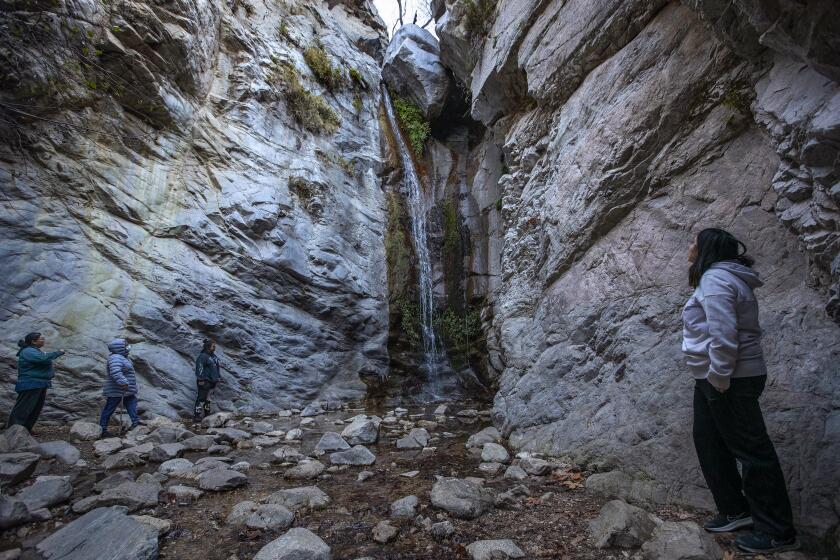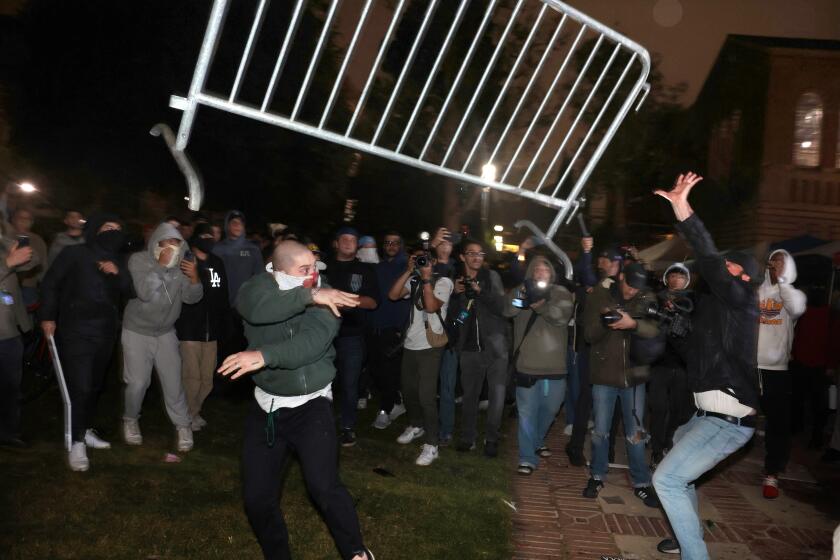Strength through subtlety
The leaders of modern Los Angeles tend to come in types: There are those whose influence derives from their money, others from their position or their fame. Eli Broad and David Geffen, for example, have shaped the cultural landscape through the strategic use of their philanthropy. Tom Bradley and Richard Riordan re-imagined the city’s inclusiveness and safety from the mayor’s office. Cardinal Roger Mahony influenced events and leaders from the pulpit.
Then there was Warren M. Christopher. A working lawyer from a small town in Nebraska, Christopher was wealthy, to be sure, but not rich in the fashion of L.A.’s leading philanthropists. He never sought or held elective public office. Unlike Broad or Geffen, Riordan or Bradley, his name does not grace any major civic institution or public building.
And yet, the Los Angeles landscape is profoundly different for his life, which ended late Friday night. Guided into service by Justice William O. Douglas — Christopher was the first Stanford Law School alumnus to land a Supreme Court clerkship — he devoted himself to counseling the leaders of his long era. Pat Brown, Bradley, Riordan, Mayor Antonio Villaraigosa and four American presidents — Lyndon Johnson, Jimmy Carter, Bill Clinton and Barack Obama — all turned to him for advice. He gave it discreetly and capably, guiding the appointments of Supreme Court justices and the search for peace in the Middle East. Christopher was of a school, lamentably not much in evidence these days, that emphasized decency and compromise, that searched for ways to solve problems rather than trounce foes.
His mark subtly lies on most aspects of life in this city. He counseled Riordan on school reform and charter reform. He was so instrumental to City Council President John Ferraro in that councilman’s long, successful run of leadership that Ferraro rarely took a big step without him. And Bradley turned to Christopher at the most crucial moment of his mayoralty, when the city rose in fury at the videotape of Los Angeles police officers beating a fleeing motorist named Rodney G. King.
That last experience is illustrative of how Christopher worked. In 1965, he had served as vice chairman of former CIA Director John McCone’s commission to unravel the causes of the Watts riots. The McCone Commission reached high — broadly examining the influence of urban poverty and other social crises to explain the violence that ensued. But by addressing so much, that commission accomplished relatively little.
In 1991, Christopher deliberately chose another route. His commission confined itself to racism and brutality within the LAPD and to the leadership structure that did too little to root out those problems. The commission produced a focused set of reforms, and voters approved them. Today’s LAPD continues to operate under those rules and continues to improve under them.
Tellingly, the Christopher Commission is known by that name only informally. Christopher always referred to it by its correct name, the Independent Commission on the Los Angeles Police Department. Even Christopher’s most concrete contribution to this city does not bear his name. He did not want it to.
More to Read
A cure for the common opinion
Get thought-provoking perspectives with our weekly newsletter.
You may occasionally receive promotional content from the Los Angeles Times.






